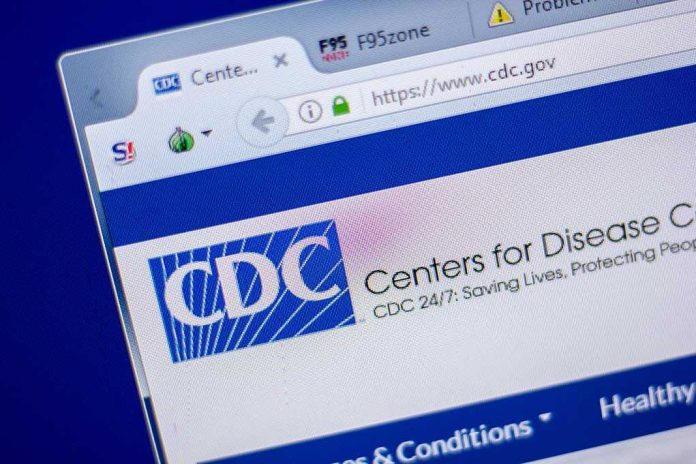
In a dramatic shake-up, the CDC Director was fired less than a month into her tenure, leaving America’s top public health agency in turmoil.
Story Highlights
- CDC Director Susan Monarez was fired after less than a month on the job.
- Her removal follows a conflict with HHS Secretary Robert F. Kennedy Jr.
- Several top CDC officials resigned in protest of the firing.
- The incident underscores tensions between scientific integrity and political agendas.
Unprecedented CDC Leadership Shakeup
In a surprising move, the White House announced the firing of CDC Director Susan Monarez just weeks after her appointment. This decision came following a significant clash with Robert F. Kennedy Jr., the Secretary of Health and Human Services. Monarez, who had vowed to maintain scientific integrity at the CDC, found her tenure abruptly terminated, raising concerns about the influence of political agendas over public health policies.
The firing of Monarez has led to a wave of resignations among senior CDC officials, who stood in solidarity with the ousted director. This exodus of leadership highlights a deepening rift within the agency, as key figures voice their dissent against perceived political interference. The resignations are seen by many as a protest against the undermining of scientific independence, a cornerstone of the CDC’s mission.
Background and Context
The CDC, as the nation’s leading public health agency, plays a crucial role in disease control and outbreak response. Leadership changes are rare, usually occurring during presidential transitions or significant controversies. The recent events, however, are unprecedented in their swiftness and magnitude, reflecting ongoing tensions between CDC’s scientific leadership and the HHS under Kennedy, known for his controversial public health positions.
The confrontation between Monarez and Kennedy reportedly stemmed from disagreements over the CDC’s direction and priorities. Monarez’s advocates argue that her removal signifies a troubling shift toward political influence over scientific evidence. This incident mirrors past pressures faced by CDC directors but marks a notable escalation with multiple resignations occurring simultaneously.
Implications and Impact
The immediate effect of Monarez’s firing is a disruption in the CDC’s leadership, with potential delays in ongoing public health initiatives. In the long term, this event may erode public trust in health agencies, as concerns about the politicization of science grow. The situation could deter scientific talent from joining federal health agencies, impacting the CDC’s ability to effectively respond to health crises in the future.
Public health experts have warned that such actions could undermine agency morale and credibility. While some argue the need for accountability and reform within the CDC, the risk of politicizing science remains a critical concern. The broader public health community and the general public, who rely on the CDC for guidance, may face increased uncertainty as the agency navigates this tumultuous period.




